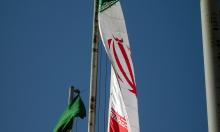A critical analysis of the green economy
A critical analysis of the green economy and of the legal nature of environmental credits

27/8/2012 - Amyra El Khalili
Everything financial, lamentably, is part of the economy. But not every economy is part of finance!
Since the CDM - Clean Development Mechanism - was introduced with the Kyoto Protocol in 1997, we have expressed our concern regarding the way in which carbon deals and agreements have been conducted. Unfortunately, the trend we have witnessed is that the market in carbon and related products is repeating the centralizing, risky, limited and worn out models using contracts drawn up in the major financial centres. International analysts estimate the value of outstanding derivatives at approximately U$222 trillion, equivalent to three times the world's GDP. The international financial crisis is not taking place on another planet, and thus, the euphoria surrounding environmental credits cannot be exempted from criticism and rejection, as occurred during the Summit of the Peoples, the parallel event to the Rio+20 conference.
It is right here, on this global deregulated market, that agreements are being negotiated between governments and financial institutions with the backing of some conservation NGOs. These agreements go against rational mathematical logic, with the traded credits being treated as commodities, i.e., as standardized merchandise for purchase and sale. Pollution is the newest fashion of commodity. Just as with waste disposal and landfills, toxic and nuclear waste, what should be eliminated is turned into an "environmental asset".
The arguments that justify the carbon market are laudable. The appeal to contain global warming is legitimate. Climate change caused by human action has been conclusively proven scientifically, even if a few sceptics make efforts to undo consolidated theses and studies. However, the modus operandi through which these objectives are intended to be reached is questionable even to the most neoclassical of economists.
It is estimated that U$ 142 billion's worth of carbon derivatives have been traded, against U$ 5 billion that have been directly invested in CDM projects. What one finds is that there is in fact a market with no controls, forming an environmental bubble that is about to burst, since the world financial system is totally intertwined by guarantees that banks exchange among themselves, via so-called "lead exchanges". There is a watchful international movement monitoring and denouncing fraud and corruption in these mechanisms.
In the financial system there is no such thing as an operation lacking a real guarantee. One cannot create a climate fund without it having guarantees of liquidity. Securities will have to be found along the way to back these ultra-high risk business dealings in the very short term.
It was no coincidence that the final document of Rio+20 disregarded the principles agreed at Rio-92: the "polluter pays" principle, the principle of precaution and the principle of common but differential responsibilities.
Hence, we are witnessing the promotion of fast-track financialization of environmental goods, such as water, biodiversity, forests (fauna, flora and genetic assets) with the collusion and assent of governments. The latter transfer their responsibilities as States to corporations through the financial system, along the most aggressively neoliberal lines seen in recent times. However, for this to happen, it is necessary to undo the environmental legislation, loosen up enforcement, make rules more flexible and hem in social and environmental movements.
If a country has no water or land to cultivate, it buys (or steals) land on another continent. This speculative movement attracts all kinds of shady business dealings. The most coveted lands are territories belonging to indigenous peoples and traditional populations (caiçaras and quilombolas, for instance). Small farmers with surface or underground water sources, rivers and springs on their properties are also targeted by speculators, who promise financial advantages in exchange for agreements that provide access to areas linked to carbon credits, in other words, using such areas as real guarantees to deal in such securities.
These trades have operated informally for 15 years, outside the reach of regulatory and enforcement agencies, putting national sovereignty at risk by virtue of land conflicts, among other territorial factors. What is most alarming is the age-old exchange of votes for water. The vulnerability of populations that lack access to sanitation and to water in sufficient quantity and quality is a fragile and worrying situation. For centuries, they have been hostages of local political elites who control their votes (voto de cabresto).
Now we have a sophisticated electoral novelty: the REDD (Reducing Emissions from Deforestation and Forest Degradation) voto de cabresto, and its creative variables, where governors and mayors race to sign agreements with foreign companies. The legal basis for such agreements remains uncertain, not least because the agreements mean international financial institutions de facto administering this nation's environmental assets. Another interesting case involves NGOs, doing marketing as if they were financial institutions authorized to "operate" by Brazil's Central Bank. These NGOs announce products, sales systems, customer records and business deals under the auspices of the law governing OSCs (Civil Society Organizations) and OSCIPs (Civil Society Organizations in the Public Interest). Can they do that?
Could it be that the market in environmental assets, whose legal nature is uncertain and extremely confused, is exempt from rules, norms, not subject to the Consumer Protection Code, and where actors won't risk being sued for deceitful advertising though the promoting takes advantage of people's lack of technical knowledge? It seems to be a market where, "chameleon-style", the players treat what is traded as commodities, then shift to calling the traded item securities (environmental securities) or environmental assets, seemingly calling it whatever takes their fancy.
Can they do that?
Subscribe to Pravda.Ru Telegram channel, Facebook, RSS!





